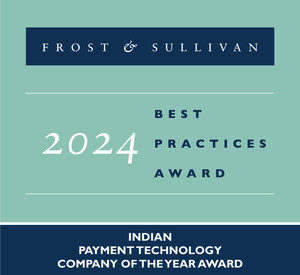Harnessing Generative AI in Healthcare and Improving Cardiometabolic Health with Precision Medicine: Key Opportunities and Insights
HOUSTON, Oct. 22, 2024 /PRNewswire/ -- In today's rapidly evolving healthcare landscape, two powerful forces are reshaping how we diagnose, treat, and manage health conditions: Generative artificial intelligence (GenAI) and precision medicine for cardiometabolic health. GenAI promises to revolutionize operational efficiency, financial workflows, and clinical outcomes, while advancements in cardiometabolic treatments pave the way for personalized, patient-centered care. However, these innovations come with challenges, including data privacy concerns and the need for tailored therapeutic options.
Generative AI: Revolutionizing Healthcare Operations
GenAI, powered by advancements like ChatGPT-4, is reshaping healthcare by optimizing workflows, reducing costs, and improving patient care. However, to fully harness its capabilities, healthcare organizations must begin implementing GenAI in foundational areas such as documentation and knowledge management, before scaling across the healthcare value chain. Additionally, organizations need to address cybersecurity concerns, as healthcare faces a growing threat of cyberattacks, with projected costs reaching $90 trillion by 2030.
"Generative AI is transforming healthcare by streamlining/creating workflows, cutting costs, and enhancing patient care. It's capacity for automation and enhanced decision-making support is critical for healthcare organizations focused on elevating patient outcomes and population health. However, to maximize its benefits, organizations should start with manageable use cases like documentation and knowledge management while also tackling adoption, integration, and cybersecurity challenges. Looking ahead, there are numerous opportunities—from next-generation digital front doors to automated prior authorization processes, and personalized communication, all designed to enhance provider, payer and patient experiences for better health outcomes."
Nitin Manocha
Growth Expert & Senior Industry Analyst, Frost & Sullivan
Precision Medicine in Cardiometabolic Health
Cardiometabolic diseases, including obesity, type 2 diabetes, and cardiovascular disease, are on the rise globally. Traditional treatment models often lack personalization and fail to address the unique needs of individual patients. Precision health aims to change this by integrating genomics, pharmacogenomics, and omics-based research to develop tailored therapies.
Key Opportunities for Stakeholders in Cardiometabolic Health
- Glucagon-Like Peptide-1 (GLP-1)-Based Multi-Agonists: Focus on developing advanced therapies that offer effective weight loss with improved tolerability.
- Bioinformatics for Data-Driven Research: Harness data analytics to identify novel drug targets.
- Precision Health Partnerships: Collaborate in high-prevalence regions to enhance diabetes management through tailored interventions.
Embrace the Future of Healthcare Innovation
For a deeper dive into these transformative trends, download our full analysis and join our upcoming webinars, where leading industry experts will discuss the role of GenAI and precision medicine in driving healthcare innovation.
Webinars:
Next-Generation Cardiometabolic Health: Strategic Partnerships for Precision-Driven Innovation
Stay ahead in the evolving healthcare landscape by registering today.
About Frost & Sullivan:
Frost & Sullivan, the growth pipeline company, enables clients to accelerate growth and achieve best-in-class positions in growth, innovation, and leadership. The company's Growth Pipeline as a Service provides the CEO and the CEO's Growth Team with transformational strategies and best-practice models to drive the generation, evaluation, and implementation of powerful growth initiatives. Frost & Sullivan leverages over 60 years of experience in partnering with Global 1000 companies, emerging businesses, and the investment community from more than 40 offices on six continents.
To engage with our growth experts for more information, click here
Media Contact: María Briceño
[email protected]







Share this article